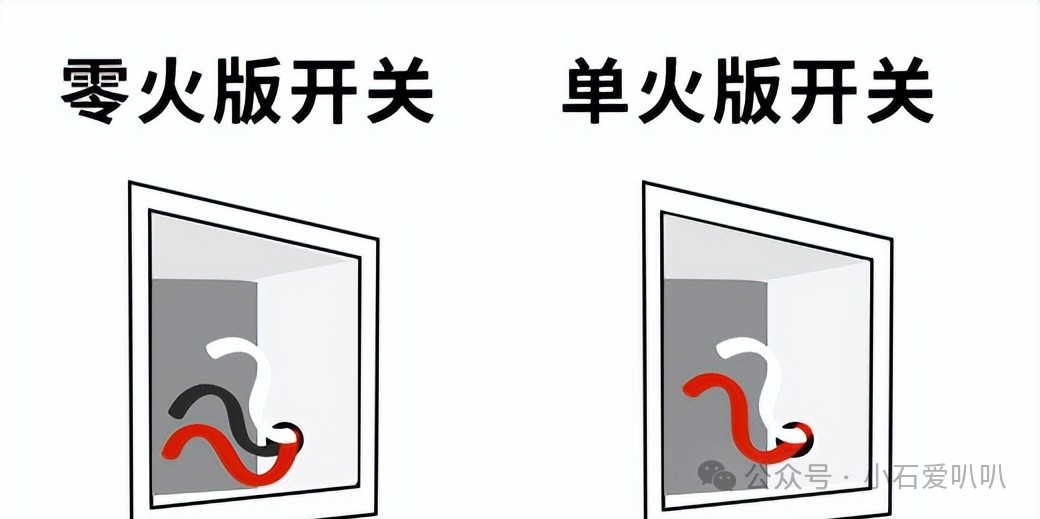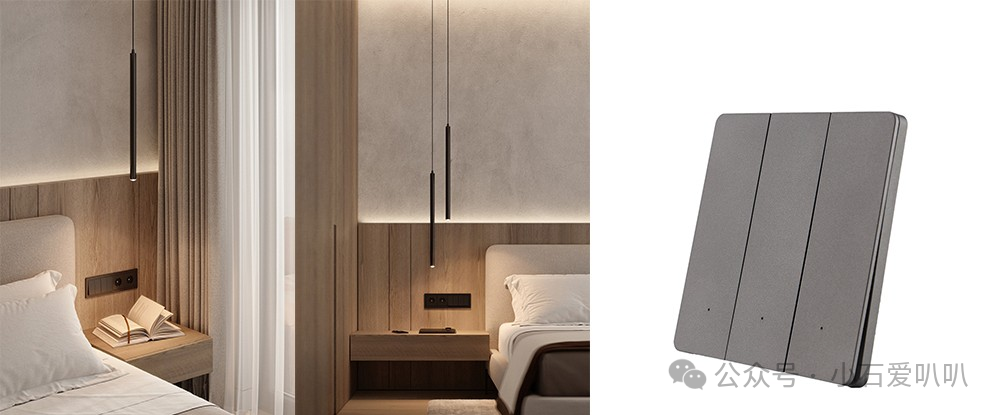Encyclopedia of Home Appliances: A Comprehensive Guide from Purchase to Maintenance
As an electrical engineer with 20 years of experience, I will unveil the mysteries of home appliances, helping you to purchase, use, and maintain various appliances more intelligently.

1. Basic Classification and Working Principles of Home Appliances
Home appliances can be roughly divided into three categories: high-power appliances, small appliances, and smart appliances.
High-power appliances mainly include air conditioners, refrigerators, washing machines, etc. They usually have higher power requirements and need dedicated circuits. For example, air conditioners achieve cooling through a compressor that circulates refrigerant; refrigerators use thermodynamic principles to remove heat from food through compression and expansion cycles.
Small appliances such as rice cookers, microwaves, and vacuum cleaners have relatively lower power and are more flexible to use. Rice cookers use heating elements to heat the inner pot, while microwaves generate heat by exciting water molecules with microwaves.
Smart appliances are emerging products in recent years, such as smart refrigerators, smart TVs, and smart speakers. They are equipped with processors and network connectivity, allowing for remote control and intelligent interaction.
[Image 1: Schematic diagram of the working principles of various home appliances]

2. Smart Purchasing Guide: Interpreting Technical Parameters

# Key Points for Refrigerator Purchase:
-
Capacity: Generally, 30-100L for one person, 200-250L for a couple, and 300-350L for a family of three.
-
Energy Efficiency Rating: Preferably choose level 1 energy efficiency; although the price is slightly higher, it saves energy in the long run.
-
Cooling Method: Direct cooling is cheaper but requires manual defrosting; air cooling eliminates frost but is noisier.
-
Inverter Technology: Inverter refrigerators have smaller temperature fluctuations and save 15-30% energy.

# Key Points for Washing Machine Purchase:
-
Agitator vs. Drum: Agitator has strong cleaning power but causes more wear; drum is gentler on clothes but more expensive.
-
Capacity: 3-4kg for one person, 7-8kg is most suitable for a family of three.
-
Features: Smart dispensing, drying, and sterilization are plus points, but assess actual needs.

# Key Points for Air Conditioner Purchase:
-
Power Rating: 1HP for 10-15㎡, 1.5HP for 15-25㎡, 2HP for 25-35㎡.
-
Energy Efficiency Ratio: The higher the value, the more energy-efficient; inverter air conditioners usually have a higher energy efficiency ratio than fixed-frequency ones.
-
Fresh Air Function: Air conditioners with fresh air functions can introduce fresh outdoor air, improving indoor air quality.

3. Energy-Saving Tips: Save Electricity and Money
-
Refrigerator Placement: Keep at least 10cm away from walls and away from heat sources, which can save 15% energy.
-
Air Conditioner Temperature: Set to 26℃ in summer; raising it by 1℃ can save about 8% energy.
-
Washing Machine Full Load: Try to run at full load to save 30% on water and electricity.
-
TV Standby: Completely turn off instead of leaving on standby; this can save 30-50 kWh per year.
-
Electric Water Heater: Use the timer function to avoid heating continuously for 24 hours.
-
Rice Cooker: Switch to keep warm or turn off promptly after cooking; prolonged keeping warm consumes a lot of electricity.
4. Safety Usage Guide: Prevention is Better than Cure
-
Socket Load: Do not connect multiple high-power appliances to one socket.
-
Regular Checks: Check for aging wires, loose plugs, and overheating sockets.
-
Leakage Protection: Ensure that leakage protectors are installed at home, especially in humid areas like kitchens and bathrooms.
-
Away from Water Sources: Keep small appliances away from water sources and do not touch electrical switches with wet hands.
-
Child Safety: Use socket covers and keep electrical cables tidy to avoid tripping hazards.
-
Long-Term Unused: Unplug appliances that are not used for a long time.
[Image 2: Safety usage diagram of home appliances]
5. Basic Knowledge of Household Circuits
-
Circuit Capacity: Ordinary households should have at least a 40A main switch; kitchens and air conditioners need independent circuits.
-
Wire Gauge Selection: Lighting 1.5-2.5mm², sockets 2.5-4mm², air conditioning 4-6mm².
-
Socket Height: Generally 30cm from the ground, 30cm from the countertop in kitchens, and above 1.2m in bathrooms.
-
Circuit Partitioning: Living rooms, bedrooms, kitchens, and bathrooms should be set up in separate circuits to avoid interference.
-
Reserved Capacity: When designing circuits, reserve 30% load margin to accommodate future appliance additions.
6. Common Fault Diagnosis and Simple Repairs
# Refrigerator Not Cooling:
-
Check if the power is on.
-
Is the condenser dusty? (Cleaning the condenser can solve 70% of cooling issues.)
-
Is the door seal aging? (Test with a piece of paper; if it can be easily pulled out, the seal is poor.)
# Washing Machine Not Draining:
-
Check if the drainage pipe is blocked or twisted.
-
Does the filter need cleaning? (Located at the front bottom of the washing machine.)
# Air Conditioner Not Cooling:
-
Check if the filter needs cleaning (clean every 2 weeks).
-
Refrigerant may be insufficient (needs to be added by a professional).
-
Is the outdoor unit’s heat dissipation obstructed?
# TV No Signal:
-
Check if the signal source settings are correct.
-
Are the connection cables loose?
-
Try restarting the TV and signal devices.
7. Trends in Smart Appliance Development
Smart appliances are developing in three main directions:
-
Interconnectivity: Appliances from different brands can connect through unified protocols (such as Matter).
-
AI Empowerment: Artificial intelligence enables appliances to learn user habits and automatically adjust working modes.
-
Health Functions: More appliances are incorporating health monitoring and air purification functions.
Currently, the main challenges facing smart appliances are privacy security and system compatibility, but these issues are gradually being resolved with technological advancements.
8. Appliance Maintenance and Longevity
-
Refrigerator: Defrost every 3 months and clean the condenser annually to extend its lifespan by 2-3 years.
-
Washing Machine: Perform a high-temperature wash of an empty drum once a month to prevent mold growth.
-
Air Conditioner: Clean the filter during seasonal changes and perform deep cleaning every 2-3 years.
-
TV: Avoid prolonged high-brightness use and wipe the screen with a slightly damp soft cloth weekly.
-
Electric Water Heater: Drain every six months and replace the magnesium rod every 3-5 years to prevent corrosion.
[Image 3: Appliance maintenance schedule]
9. Appliance Recycling and Environmental Disposal
Old appliances should not be discarded casually and should be processed through the following channels:
-
Official Recycling: When purchasing new appliances, request manufacturers to recycle old ones.
-
Professional Recycling Stations: Electronic waste recycling points are set up in various cities.
-
Recycling Value: Old appliances contain valuable metals like copper and iron, and professional recycling can turn waste into treasure.
Correctly recycling a refrigerator can reduce about 135kg of carbon emissions, equivalent to the emissions of a car traveling 500 kilometers.
10. Special Appliance Selection Suggestions for Specific Scenarios
# For Households with Elderly:
-
Choose button-operated appliances instead of touch-screen ones.
-
Prioritize voice control functions to reduce bending down to press buttons.
-
Induction cookers should have knob controls instead of touch controls.
-
Refrigerators should have top refrigeration and bottom freezing to reduce bending frequency.
# For Households with Young Children:
-
Appliances should have child lock functions.
-
Choose appliances with rounded corners to reduce collision injuries.
-
TVs should have anti-blue light functions.
-
Air conditioners should preferably have self-cleaning functions to reduce dust impact on children.
# For Renters:
-
Prioritize small multifunctional appliances.
-
Consider portable washing machines, mini refrigerators, etc.
-
Pay attention to the noise levels of appliances to avoid disturbing neighbors.
Conclusion
Appliances have become a necessity in modern life. Mastering this knowledge can not only help you save money and effort but also enhance the quality and safety of your life. I hope this guide can be a valuable assistant in managing your home appliances, allowing technology to truly serve your life.
Whether purchasing new appliances or maintaining old ones, remember one principle: what suits you best is the best. There is no need to blindly pursue high-end features; make wise choices based on actual needs.